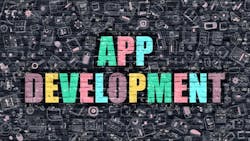Some people may be skeptical about the enthusiasm others show for HL7’s Fast Healthcare Interoperability Resources (FHIR) standard for exchanging health data. They may see it as on the “Peak of Inflated Expectations” phase of Gartner’s famous hype cycle, heading straight for the “Trough of Disillusionment.” That’s why HL7’s upcoming FHIR Applications Roundtable offers a concrete reminder of the types of projects under way at leading provider organizations, and may help garner enthusiasm from those who haven’t shown interest yet. Scheduled for July 27-28 at Harvard Medical School in Boston, the meeting will feature several presentations and demos from providers, vendors, academic institutions, and startups of FHIR-based solutions that are currently in development or already being deployed.
The purpose of the meeting is to educate the healthcare industry about the breadth and depth of FHIR solutions that are or will be available. Attendees will be invited to judge the quality of the FHIR presentations by voting on best of show and other awards to be announced. Several of the presentations in the agenda list developments that haven’t been described in detail previously. Here are just a few:
• The SMART Health IT team at Boston Children's Hospital is building an open-source pharmacogenomics decision support service using SMART, FHIR, and CDS Hooks to provide medication dosing guidance at the point of care. This project integrates patient-level genotypes, expressed in FHIR, to compute and convey dosage advice that can be integrated into the electronic prescribing user interface of EHR systems. At the Boston meeting they will demonstrate a prototype CDS Hook that incorporates Thiopurine methyltransferase genotype data into an open-source, real-time dosage support service that addresses use cases from the National Academies of Sciences DIGItiZE project.
• Intermountain Healthcare has enhanced the Pediatric Growth Chart SMART on FHIR app developed by Boston Children's Hospital. The app is live within the Cerner EMR in Intermountain's NICUs and ambulatory pediatric clinics. The app displays a child's height, weight, and head circumference, extracted from the EMR using FHIR resources, against pertinent growth curves in order to compare the child's growth with children of similar characteristics. Notable Intermountain enhancements include moving the standard growth curves to external files that can be updated by organizations, and adding tabular data to curve printouts for parents.
• Wolters Kluwer’s UpToDate, a provider of clinical decision support for over 1 million clinicians worldwide, will showcase how they are using FHIR to make their applications contextual to patients when launched from EHRs. The team will demo their search application on FHIR and provide an overview of their Interactive Clinical Guidelines application (in development) that will assist clinicians in making appropriate decisions for specific clinical questions, helping healthcare systems to reduce unwarranted variability in care and meet quality goals for value-based care.
• ClinicalTrialsMatch (CTMatch) is a patient-centric technology platform that matches a patient to clinical trials. This matching is delivered by a web service that applies trials' eligibility criteria to patient characteristics. The patient data is submitted as a bundle of FHIR resources.
• The PCORnet Patient Powered Research Networks (PPRNs) are patient advocacy organizations whose participants have a vested interest in accelerating research, and as such are eager to assist in getting high-quality health data into the hands of relevant and appropriate researchers. The PPRNs are developing an app that will enable a participant to retrieve her Common Clinical Data Set from her provider, and to redirect the FHIR resources to a chosen PPRN URL, where the data will be translated into the PCORnet Common Data Model, integrated with existing data, and made available to researchers as specified by the participant.
• In a breast cancer pilot, Boston Children's Hospital, Dana Farber Cancer Institute, Intermountain Health, Mass General Hospital and Sysbiochem are collaborating on developing services for deploying clinical predictive models using the FHIR standard. The services enable integration of family history data from EHR and predicted risk scores from the predictive models back into the EHR. Resources have been aligned with a goal of building a SMART app with the first use case of breast cancer. This project will serve as a testable pilot for integrating genomic and clinical data using FHIR for use by all stakeholders.
• FHIR Genomic Pilots: This talk will give a quick overview of FHIR Genomic pilots announced and their status around the world (over 20 currently) across four continents. Three use cases will be explored in this talk: Diagnostic Order/Reporter, Precision Cancer Medicine, and FDA's precisionFDA.
• The SMART on FHIR Genomics Server: The SMART on FHIR Genomics Server builds on FHIR Genomics to enable clinico-genomic apps to run with features such as authentication, patient scoping, and authorization. Several pilot apps that have been built on top of this platform will be demoed.


